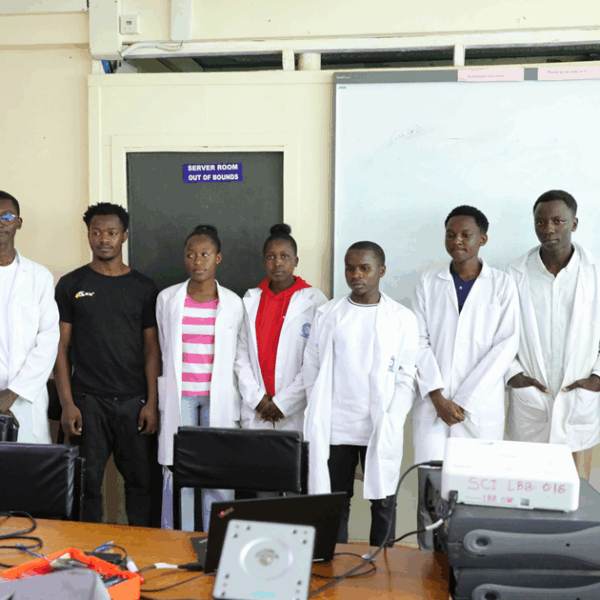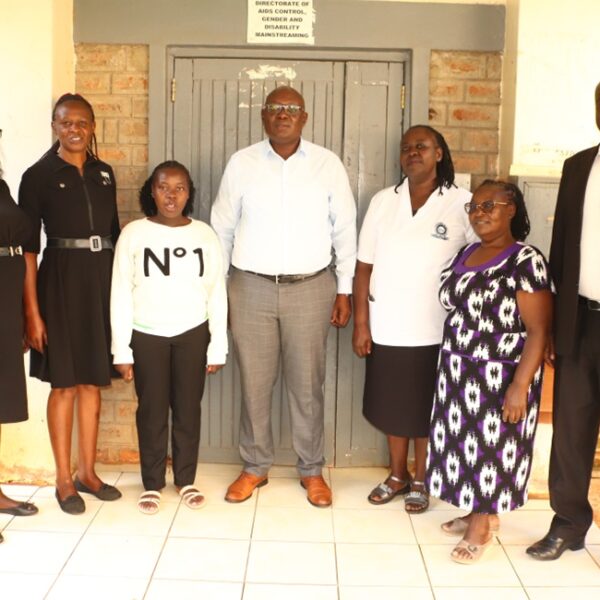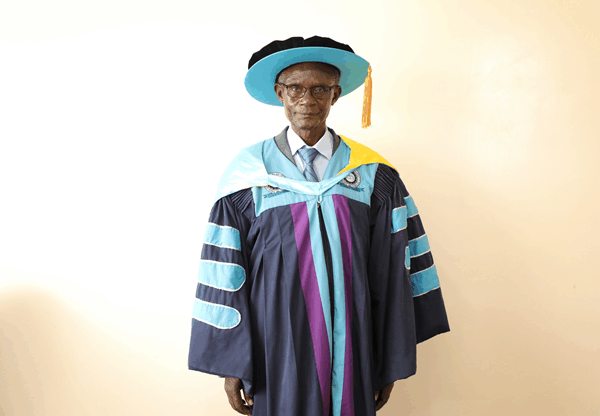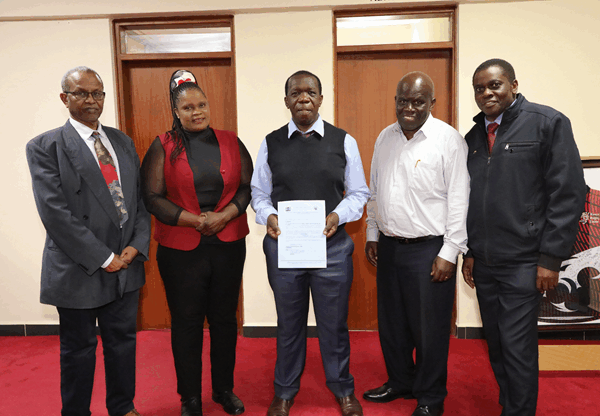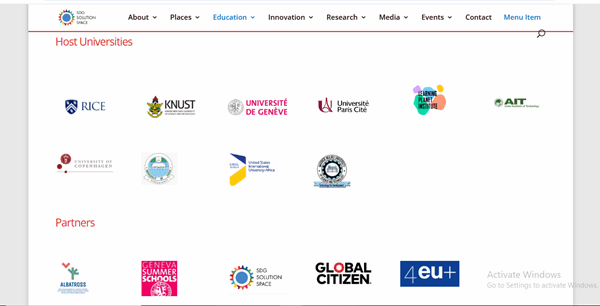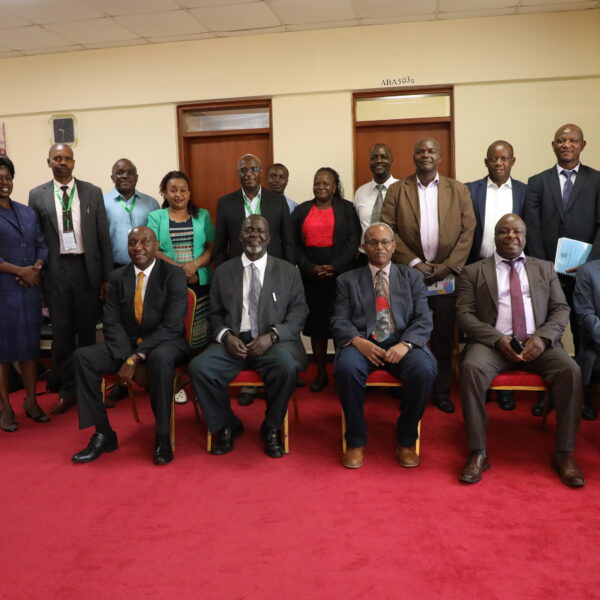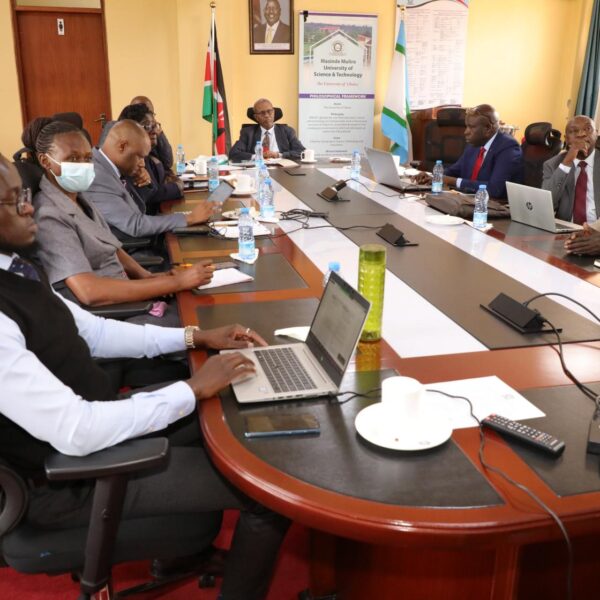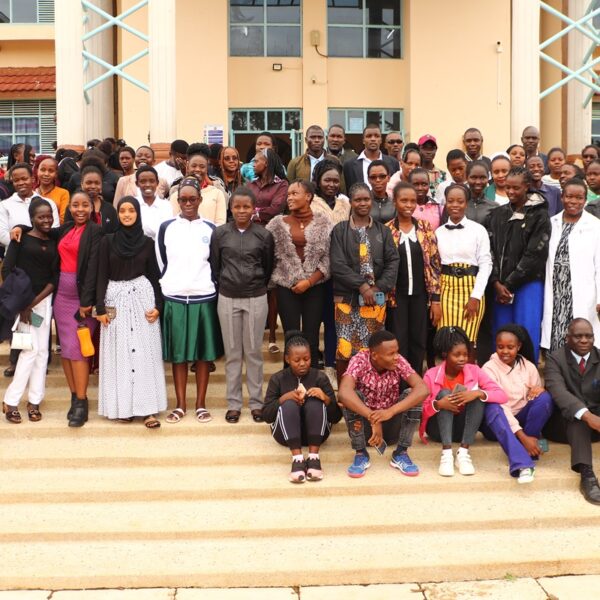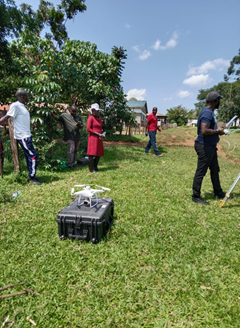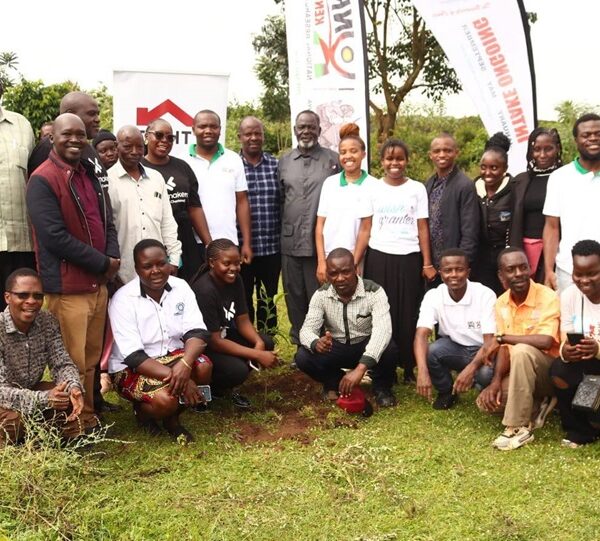Don’t Miss
MMUST School of Computing and Informatics Continues to Prepare the Next Generation of Innovators With Intensive IoT and AI Training
Masinde Muliro University of Science and Technology’s (MMUST) School of Computing and Informatics (SCI) second-year and Diploma students are undergoing intensive practical training on the Internet of Things (IoT) and Artificial Intelligence (AI). This 8-week program,…
MMUST Embraces Inclusivity Through Progressive Directorate on AIDS Control, Gender, and Disability Affairs
At Masinde Muliro University of Science and Technology (MMUST), inclusivity is more than a policy; it is a practice deeply embedded in the heart of its operations. Through the Directorate of AIDS Control, Gender, and Disability…
Prof. Aggrey Simiyu, Founding Dean of MMUST’s School of Education Retires, Leaving an Indelible Legacy in Teacher Training
Masinde Muliro University of Science and Technology’s Professor of Education (specializing in Instructional Technology), Prof. Aggrey Mukasa Simiyu, has retired from the University. Prof. Simiyu, the founding Dean of the Faculty of Education and Social…
National Land Commission Grants MMUST 7.6 Hectares of Land in Webuye for Educational and Environmental Advancement
In execution of the Kenya Land ACT 2012, the National Land Commission has granted Masinde Muliro University of Science and Technology 7.6 hectares of land in Webuye Municipality, Bungoma County. The land parcel, ‘Webuye Municipality…
MMUST One of the Two Universities in Kenya Set to Participate in the 2025 Global SDG Olympiad in Geneva
Masinde Muliro University of Science and Technology is one of the two Universities in Kenya set to participate in the 2025 Global Sustainable Development Goals (SDG) Olympiad in Geneva. The highly anticipated global competition, slated…
The Commission for University Education (CUE) Carries Out Academic Quality Audit at MMUST for Its Engineering and Computer Science Programmes
The Commission for University Education (CUE) on 25th June 2025, visited Masinde Muliro University of Science and Technology (MMUST) as part of its routine programme quality audit exercise. The visit is aimed to assess the University’s…
MMUST University Management Board Undergoes Disability Mainstreaming Training to Enhance Institutional Inclusion
Muliro University of Science and Technology’s University Management Board (UMB) has undergone a comprehensive training on disability mainstreaming as part of the institution’s commitment to inclusivity and equal access to education for all. The training…
MMUST Avails Practical Library Science Experience to Diploma and Technical Students
Masinde Muliro University of Science and Technology (MMUST), through its Library and Information Services section, recently provided a transformative learning opportunity to over 50 students from St. Paul’s Kibabii Diploma College and Rift Valley Technical…
Prof. John Muoma Embarks on a Second Collaborative Project Aimed at Enhancing Biological Nitrogen Fixation in Key Legumes
Masinde Muliro University of Science and Technology’s Prof. John Muoma and Dr. Sergio Svistoonoff of Plant Health Institute Montpellier (PHIM) have embarked on a collaborative project, courtesy of the Kenya-France Pamoja Initiative. The project, led…
MMUST Joins Forces With Regional Partners in Planting 12,500 Trees, to Advance Its Vision for Green Revolution
In an effort to advance its vision for a ‘green revolution’, Masinde Muliro University of Science and Technology (MMUST) joined forces with partners from the region and planted 12,500 trees. The tree planting event, which was organized by the Coordinator…

